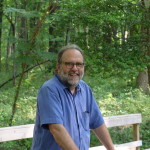By Mike Weilbacher, Executive Director
 Before Pope Francis arrives in Philadelphia on Saturday, he will present groundbreaking speeches, one to a joint session of Congress on Thursday, the other to the United Nations on Friday. He’s likely covering a number of hot-button topics, including immigration, poverty, homelessness…
Before Pope Francis arrives in Philadelphia on Saturday, he will present groundbreaking speeches, one to a joint session of Congress on Thursday, the other to the United Nations on Friday. He’s likely covering a number of hot-button topics, including immigration, poverty, homelessness…
…And climate change. The pope, blessedly fearless, walks where angels fear to tread. His June encyclical, Laudato Si’, or “Praise be to you,” rocked the world in its condemnation of how we treat the environment, using language no pope and too few world leaders have used before. Humanity’s “reckless” behavior and “unfettered greed” have pushed the planet to a “breaking point.”
Quoting his namesake St. Francis of Assisi in his very first sentence, the pope writes that “the Earth, our home, is beginning to look more and more like an immense pile of filth. In many parts of the planet, the elderly lament that once beautiful landscapes are now covered with rubbish. Doomsday predictions,” he warned, “can no longer be met with irony or disdain.”
Citing the scientific consensus that global warming is real, the Pope spread the blame to many places: business and energy interests, politicians and scientists, economists and indifferent individuals, even “callous Christians” and “myopic media professionals.”
And climate change dovetails with his concerns about poverty and economic inequality. “One particularly serious problem,” he wrote, “is the quality of water available to the poor.” As climate change rearranges where water is—and is not—he worries the poor will have even less access to water than currently. And if sea levels continually rise, Bangladesh, for example, will be one of the first countries to physically disappear, as this wretchedly poor country occupies a massive low-lying delta—and has little resources to construct the dikes that may be needed. So it is the poor who will become climate refugees as sea levels rise and weather warms.
“Indeed, when all is said and done,” the Pope said of the poor, “they frequently remain on the bottom of the pile.”
But Laudato Si’ is much more than, to borrow a word from the Jewish faith, a jeremiad, an angry screed. Lost in the discussion since its release was—no surprise here—its big-heartedness. “I urgently appeal,” he says towards the end of the introduction, “for a new dialogue about how we are shaping the future of our planet. We need a conversation which includes everyone, since the environmental challenge we are undergoing, and its human roots, concern and affect us all. The worldwide ecological movement has already made considerable progress and led to the establishment of numerous organizations committed to raising awareness of these challenges,” he says, and here in the Northwest, organizations from Friends of the Wissahickon to the Schuylkill Center, Morris Arboretum to Weavers Way have dedicated themselves to preserving the planet’s ecological diversity.
Which to me, if I am allowed to say this, is inherently sacred work. Noah built an ark to carry the planet’s living creatures into an uncertain future; the Schuylkill Center and the Wissahickon act as biological arks to keep life afloat.
“Human beings, “he notes deep in the encyclical, “are… capable of rising above themselves, choosing again what is good, and making a new start, despite their mental and social conditioning. We are able to take an honest look at ourselves, to acknowledge our deep dissatisfaction, and to embark on new paths to authentic freedom. “
He calls for mundane actions like taking the bus to major “lifestyle changes,” for switching to alternative and sustainable sources of energy like solar power (and solarize his churches?). “No system can completely suppress our openness to what is good, true and beautiful… I appeal to everyone throughout the world not to forget this dignity which is ours. No one has the right to take it from us.”
Amazingly, to this educator, he also calls for education “aimed at creating an ecological citizenship.” “Environmental education should facilitate making the leap towards the transcendent which gives ecological ethics its deepest meaning. It needs educators capable of developing an ethics of ecology, and helping people, through effective pedagogy, to grow in solidarity, responsibility and compassionate care.”
The encyclical ends with two prayers, which perhaps Catholics have already begun incorporating into their liturgies. “Help us to protect all life,” concludes one, “to prepare for a better future.”
And to that one can only respond, Amen. This week, with the pope in the U.S., I’ll be watching how loudly climate change registers in his public statements.
Note: A version of this essay was published in the Roxborough Review in the Natural Selections column on September 23, 2015
